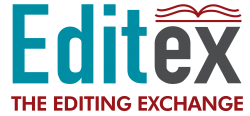Part Two: Research Skills and Academic Sources This article is part of the series ‘How to Write Distinction Essays Every Time: The Six Steps to Academic Essay Writing’. One article in this series will be published on the Editex blog each day this week. Have you ever received feedback on an assessment telling you that the sources you used were not academic? Have you ever used Wikipedia or another non-academic source in your research? Do you find knowing what sources to use and what sources not to use confusing? Do you have trouble knowing where to go to get the information you need for your research? Being able to tell the difference between an academic source and a non-academic source, knowing where to find academic sources and deciding what sources are relevant to your research are important skills that you will develop during your tertiary studies. The aim of this information sheet is to point you in the right direction. Books, monographs and textbooks The first place you should go is the library, even if this means ordering in books from other libraries. For academics to have their books (and journal articles) published, they must go through a process called peer-reviewing. During this process, one or more other academics who are experts in the field will read and assess a book or article to decide if it is of publishable standard. This is why your research will be of the highest quality if you use books, monographs, textbooks and journal articles written by academics for your research, because the work had to meet academic standards. There is no such process for publishing on the internet; anyone can write whatever they like on any subject. Journal articles and electronic databases Your second stop after books, monographs and textbooks will be journal articles. Some of these will only be available in hardcopy from the library, but many will be available in their full-text versions through online electronic databases, such as JStore, ProQuest and Ingenta. (Access to these databases is through the university library catalogue.) When you search the electronic databases, make sure you modify your search so that you are only given results from peer-reviewed journals. This will ensure that the journal articles you find have gone through the process explained above to ensure that they are of a high standard. You can also search so that you only receive results for articles that are available in their full electronic versions. Internet resources As explained above, there is no way of ensuring the standard of information that is uploaded to the internet. Anyone can publish anything on the internet, thus websites are not the ideal place for you to go to get your information. When you do use the internet and website for your research, you need to be sure that you are consulting reputable sources. For example, websites published by governments, universities, the United Nations and national organisations like the Australian Practice Nurses Association, will generally contain quality information. However, it is important to note that these sources are not considered academic sources if they have not been written by academics. Nonetheless, unless you have been specifically requested by your tutor or lecturer to only use sources written by academics, you can often find valuable information from these reputable websites that may assist you in your research. Just be careful that you know exactly who has published the information on the internet and be sure to record the exact URL for your reference list. A useful guide but not definitive: Where to go for more information The above information is only a guide and ultimately where you find most of your sources will depend on what your essay topic is. For example, if you were writing a Sociology essay on an aspect of the media you would need to consult newspapers, television programmes and internet news websites. If you are in doubt about what types of sources to use, check your course information booklet for more information about your particular assessment piece. Find out if there is a recommended reading list that you can begin with, and then use the sources listed in those readings to find further sources. If you are still not sure, check with your lecturer or tutor. The next article in this series is ‘How to Write Distinction Essays Every Time: Step 4. Finalise the Essay Plan’. For more information on our professional essay, assignment, thesis and dissertation editing service, please visit https://editex.com/editing-services/students-essay-editing/. To submit your essay assignment, thesis or dissertation for professional editing now, please visit https://editex.com/submit-document/step-1-submit-your-details/. featured image by timetrax23


